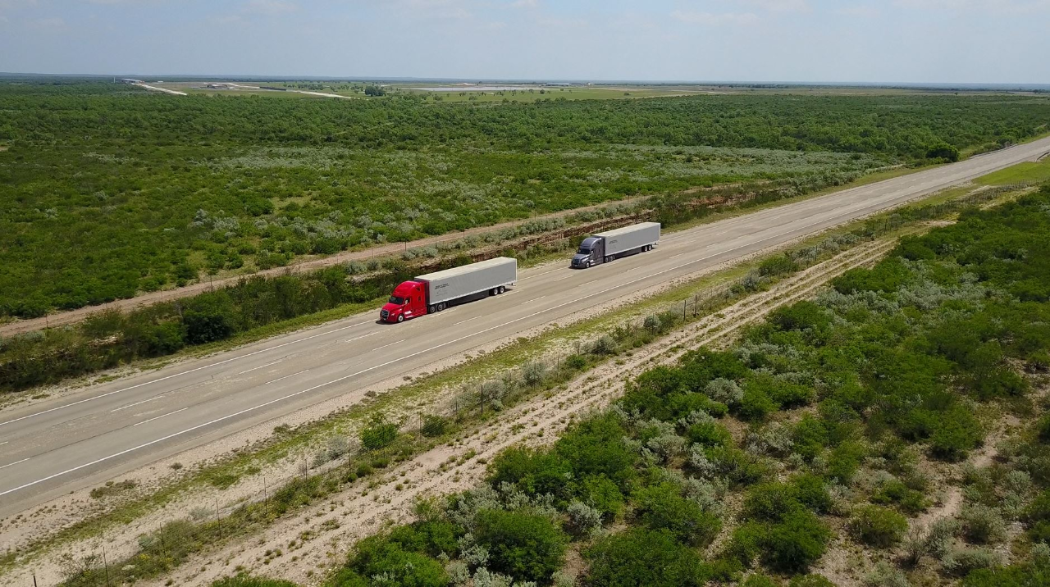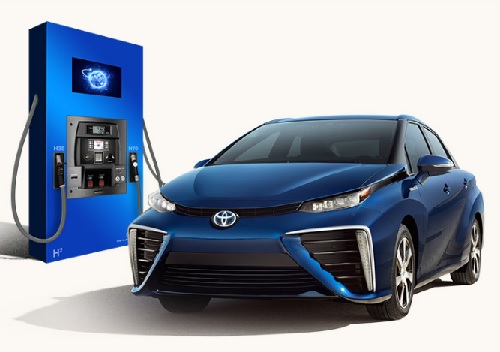Newsworthy: Autonomous trucks appear to be ready to adoption on public roads faster than self- driving cars with huge investments being made for that to take place, according to technologists like Tesla and Embark. Trucking companies may not be as optimistic about the fast pace. Tesla will be showcasing its electric truck with some autonomous capabilities, while Silicon Valley startup Embark has been testing its autonomous trucking technology in a three-way partnership with Ryder and appliance giant Electrolux. CB Insights reports that companies will place about $1 billion in commercial truck autonomous systems this year, 10 times the level of spending three years ago………. General Motors’ joint venture company will be able to hit China’s new energy vehicle requirement of 10% in annual sales by 2019 without having to buy credits, GM China chief Matt Tsien said. “I can’t give you any specific (NEV production and sales volume) numbers other than to say that through the complicated formula we will either meet or exceed,” he said………….. Faraday Future is continuing to struggle, with three top executives leaving the company or already having done so. Stefan Krause, a former financial executive at BMW and Duetsche Bank, has left as CFO. Ulrich Kranz, another BMW veteran, and tBill Strickland, head of vehicle manufacturing who previously headed the Ford Fusion program, are exiting Faraday……….. It looks like the Ford C-Max will stop production over the next year. The 2018 model year lineup has dropped the C-Max Energi plug-in hybrid, and the C-Max Hybrid is expected to finish up at the Michigan Assembly Plant in mid-2018………. Volkswagen may be adding the third-generation Beetle to its electric vehicle lineup built on the new MEB platform, according to Board Chairman Herbert Diess.
driving cars with huge investments being made for that to take place, according to technologists like Tesla and Embark. Trucking companies may not be as optimistic about the fast pace. Tesla will be showcasing its electric truck with some autonomous capabilities, while Silicon Valley startup Embark has been testing its autonomous trucking technology in a three-way partnership with Ryder and appliance giant Electrolux. CB Insights reports that companies will place about $1 billion in commercial truck autonomous systems this year, 10 times the level of spending three years ago………. General Motors’ joint venture company will be able to hit China’s new energy vehicle requirement of 10% in annual sales by 2019 without having to buy credits, GM China chief Matt Tsien said. “I can’t give you any specific (NEV production and sales volume) numbers other than to say that through the complicated formula we will either meet or exceed,” he said………….. Faraday Future is continuing to struggle, with three top executives leaving the company or already having done so. Stefan Krause, a former financial executive at BMW and Duetsche Bank, has left as CFO. Ulrich Kranz, another BMW veteran, and tBill Strickland, head of vehicle manufacturing who previously headed the Ford Fusion program, are exiting Faraday……….. It looks like the Ford C-Max will stop production over the next year. The 2018 model year lineup has dropped the C-Max Energi plug-in hybrid, and the C-Max Hybrid is expected to finish up at the Michigan Assembly Plant in mid-2018………. Volkswagen may be adding the third-generation Beetle to its electric vehicle lineup built on the new MEB platform, according to Board Chairman Herbert Diess.
State of the Technology: While Toyota and a few other global automakers are taking hydrogen fuel cell vehicles quite seriously, the clean technology’s chances of reaching mass adoption are still far away. Yoshikazu Tanaka, chief engineer of the Toyota Mirai FCV, said that Toyota won’t be giving  up on fuel cell vehicles, but electric vehicles are in a stronger position for widespread adoption in the marketplace. “Elon Musk is right – it’s better to charge the electric car directly by plugging in,” he said.
up on fuel cell vehicles, but electric vehicles are in a stronger position for widespread adoption in the marketplace. “Elon Musk is right – it’s better to charge the electric car directly by plugging in,” he said.
The Japanase automaker has so far only sold about 2,400 of its Mirais in the U.S., and about 4,300 total worldwide. That comes after two years of being on the market, and pales in comparison to EV sales in China, the U.S., and Europe. Toyota’s strategy is based on a diverse product portfolio, with hydrogen-powered commercial trucks being tested in Japan, sales of the Prius Prime plug-in hybrid taking off, and a new business unit dedicated to electric vehicle development. That comes from increasing pressure by governments to provide fossil-fuel free vehicles in the coming decades; and forecasts by several companies including oil giant Shell.
Fuel cell vehicles will be part of it as zero emission vehicles complying with government mandates, but the expectations are strong for mass adoption of EVs by the 2030s. Toyota doesn’t see a fight between the two technologies to be inevitable. “We don’t really see an adversary ‘zero-sum’ relationship between the EV and the hydrogen car. We’re not about to give up on hydrogen electric fuel-cell technology at all,” Tanaka said.
Fuel cell technology is seeing a lot of its business growth with companies like Amazon using it for powering fork lifts and providing energy to massive warehouse facilities. Plug Power is seeing demand grow in these sectors, with the company reporting 250% revenue growth in the third quarter.



